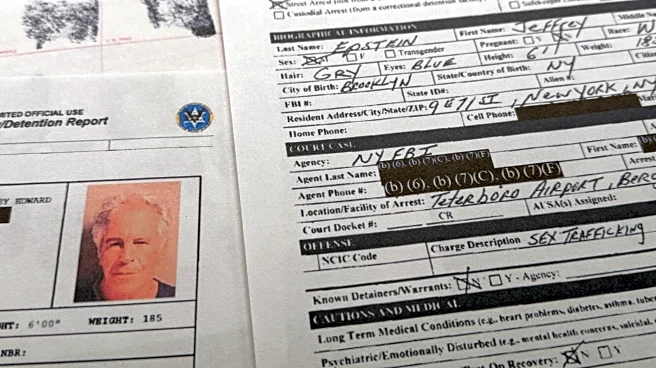What is the story about?
What's Happening?
President Trump's announcement of a 100% tariff on foreign brand-name drugs has raised numerous questions among experts regarding its impact on drug prices and manufacturing. The tariffs, set to take effect on October 1, apply to branded pharmaceutical products unless the company is building a manufacturing plant in the U.S. Experts are concerned about potential price increases for medications, as companies may pass on the costs to consumers. The tariffs could also affect the availability of certain drugs, particularly those manufactured overseas.
Why It's Important?
The tariffs could significantly impact the U.S. healthcare system, potentially leading to higher drug prices and affecting patient access to essential medications. While the tariffs aim to encourage domestic manufacturing, the complexity and cost of building new facilities may limit their effectiveness. The move could also strain international trade relations and disrupt global supply chains. The healthcare industry, including insurers and pharmacy benefit managers, may face challenges in managing the increased costs and ensuring continued access to medications for patients.
What's Next?
Pharmaceutical companies may seek exemptions from the tariffs by investing in U.S. manufacturing facilities. The industry will likely engage in discussions with policymakers to address the potential impact on drug prices and access. Healthcare providers and consumer advocacy groups may advocate for measures to mitigate the effects on patients. The U.S. government may need to clarify the criteria for exemptions and address concerns about the tariffs' impact on the healthcare system.

















